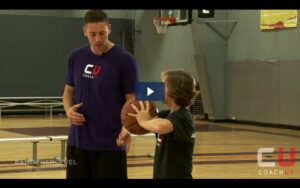With athletes aspiring to compete at higher levels in sports each year, the summertime off-season becomes an important training period. Athletes of all ages have many options for off-season training that will take their game to another level. Unfortunately, with so many options, making summer plans can become hectic, making you feel overwhelmed and frustrated. Understandably, between camps, clinic, cross-training, gym memberships, and other training offerings, the landscape can be challenging to navigate. Let us help with some advice for how you, or your child, can train over the summer:
Register for a camp or clinic. Camps can be a great way for kids to get used to playing against local or out-of-town competition, depending on where the camp is located. Typically kids will practice with their peers during the day in large groups and will get exposed to different coaching styles, with an occasional break out session to review fundamentals and strategy. While the length of camps vary, they usually only last a few days, up to week. Camps can also get pricey and can’t replace three months of consistent activity, so be selective and avoid scheduling a summer full of back-to-back camps. Stay healthy. Make sure you and your athlete are eating nutritious food and staying active over the summer months. Beginner or advanced, young or old, consistent activity is a must for any athlete. The more in shape an athlete is by the end of the summer, the less challenging pre-season training or tryouts will be. An additional benefit to keeping up general fitness is that an athlete will have more confidence in their play which in turn will reduce performance related anxiety. Even parents without a sports background can help here. Timing athletes, counting reps, completing drills and taking kids on bike rides, trail runs or to a local swimming pool are easy ways to provide support. Seek the help of a private coach or trainer. A private coach can create a customized, sport-specific training program for your athlete over the summer. Your coach will provide individualized attention and will work with your child on his or her particular needs. Many private coaches will provide guidance in skill development, but they can also help your athlete when it comes to film study, competition strategy, flexibility and agility work, and weight-training regimens. For athletes just starting out, a private coach can help introduce or expose them to a new sport they lack experience in, which can help an athlete catch up to the rest of his teammates if he’s a few steps or years behind in experience. Just how important is off-season training? Very, says Former NFL player and CoachUp football coach Izaan Cross.
“For young players especially, conditioning always serves as a giveaway for the work that a player has put in during the off-season,” Cross says. “You can also tell if a player has stayed active or partaken in summer training camp or private coaching by questioning their knowledge of the game. If they can answer questions that they would not have been able to answer the previous season, or they do not make the same mistakes that they made the prior season, they most likely continued their growth as an athlete during the off-season.”
So sign your athlete up for camp, stay active together, and find a private coach to support your athlete’s goals. The hard work and preparation will pay off, and the rewards will become apparent in the new season this coming fall. 
How useful was this post?
Click on a star to rate it!
Average rating 0 / 5. Vote count: 0
No votes so far! Be the first to rate this post.




